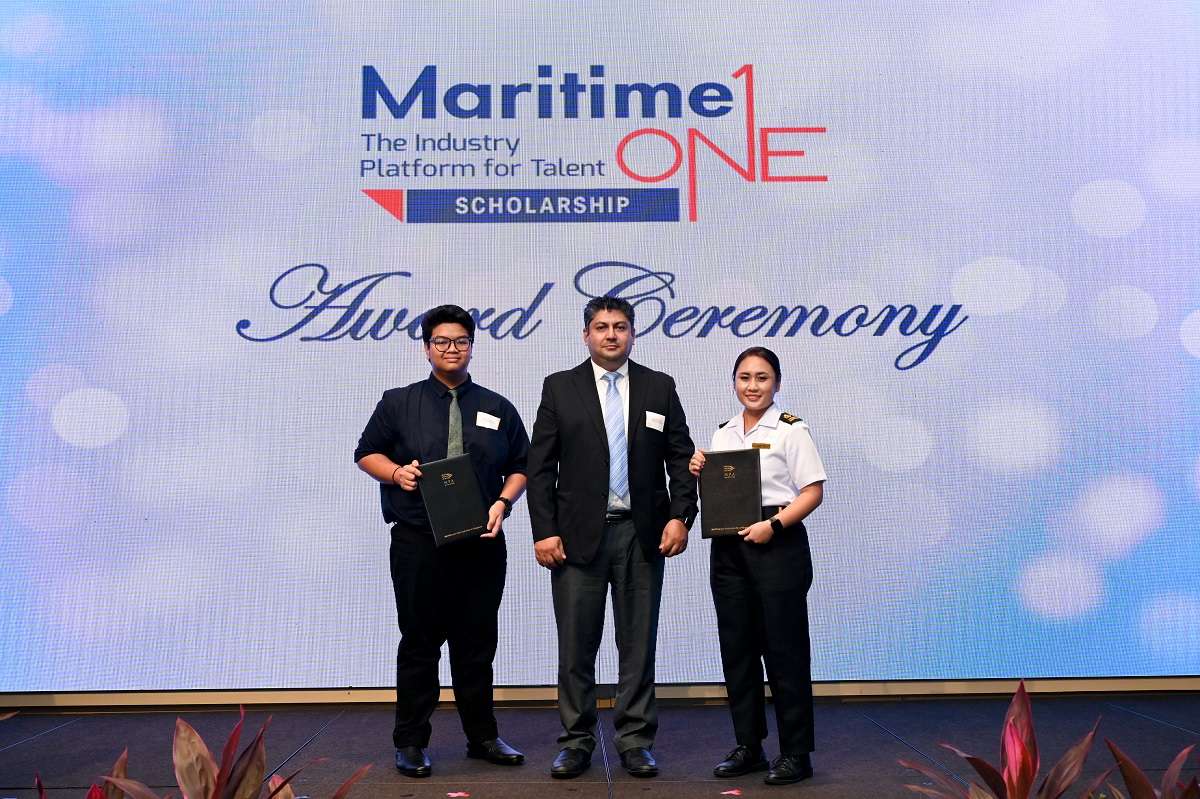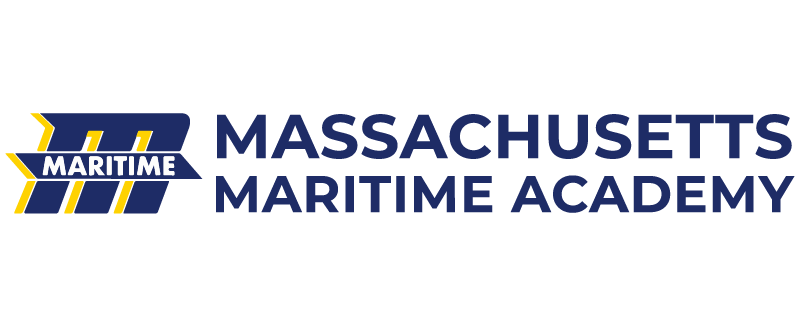
Maritime Scholarships: Charting Your Course to a Life at Sea
I remember standing on the pier as a young boy, the salty air whipping through my hair, watching those massive cargo ships glide out into the vast, shimmering expanse. They looked like giants, silent and majestic, carrying their secrets and their precious cargo to faraway lands. Every time one disappeared over the horizon, a part of me yearned to be on board, to feel the rumble of the engines beneath my feet, to navigate by the stars, and to discover what lay beyond that endless blue. That dream, a life at sea, felt incredibly potent, but also impossibly distant. How could a kid like me, with no real connections to the shipping world and a family budget that barely stretched, ever hope to join the ranks of those brave men and women who called the ocean their office?
The cost, you see, was the first formidable wave that threatened to capsize my aspirations. Maritime academies, with their specialized training, simulators, and sea-time requirements, weren’t cheap. It felt like a luxury reserved for others, for those with deeper pockets. I almost gave up, telling myself it was just a childish fantasy. But then, a chance conversation, a whispered piece of advice from an old seaman I met down by the docks, changed everything. "Son," he rasped, his eyes twinkling with the wisdom of a thousand voyages, "don’t you ever think money should stop a true seafarer. There are ways. There are maritime scholarships."
That phrase, "maritime scholarships," landed in my ears like a lifeline thrown in a storm. It was a revelation, a concept I hadn’t even considered. I went home that day with a renewed fire in my belly, ready to dive headfirst into understanding what these scholarships were and how they could potentially turn my impossible dream into a tangible reality.
So, what exactly are these maritime scholarships that the old seaman spoke of? In simple terms, they are financial aid packages designed specifically for students who want to pursue a career in the maritime industry. They’re not just for deck officers or engine room crew, mind you. The maritime world is vast, encompassing everything from naval architecture and marine engineering to maritime logistics, port management, oceanography, and even environmental marine science. These scholarships can cover tuition fees, accommodation, living expenses, books, and sometimes even the cost of specialized equipment or travel for sea training. They are, in essence, a helping hand, a powerful endorsement that says, "We believe in your potential to contribute to this vital global industry."
The beauty of these scholarships is their diversity, much like the ocean itself. You might think they’re only for the absolute top-of-the-class prodigies, but that’s not always the case. While academic excellence is certainly a factor for many, passion, leadership potential, community involvement, and a genuine commitment to a career at sea often weigh just as heavily. Some scholarships are awarded based purely on financial need, ensuring that talented individuals aren’t excluded simply because of their economic background. Others target specific demographics, encouraging women to join a historically male-dominated field, or supporting students from particular regions.
My journey to finding the right scholarship felt like navigating an uncharted sea. I started with the most obvious places: the websites of prominent maritime academies and universities. Almost all of them had a "Financial Aid" or "Scholarships" section. I quickly learned that many institutions offer their own scholarships, often funded by alumni, industry partners, or the university itself. These might be general "Dean’s Scholarships" or highly specialized ones, like the "Captain’s Compass Award" for aspiring navigators or the "Engine Room Excellence Grant" for future marine engineers.
Beyond institutional scholarships, I discovered a whole ecosystem of external funding sources. Shipping companies, for instance, are often major benefactors. They invest in the future workforce by sponsoring cadets, sometimes even guaranteeing employment after graduation. Imagine that: not only do they help you pay for your education, but they also offer you a job right out of the gate! This was incredibly appealing, as it removed a huge layer of uncertainty about my post-graduation prospects. I looked into companies like Maersk, CMA CGM, and various national shipping lines. Many of these have dedicated cadet programs that come with full scholarships.
Then there were the maritime organizations and foundations. Groups like the Nautical Institute, the Institute of Marine Engineering, Science & Technology (IMarEST), and various national maritime administrations frequently offer scholarships to support students in their respective fields. These organizations often have a broader mission to advance maritime knowledge and safety, and nurturing new talent is a key part of that. I spent countless hours poring over their websites, reading eligibility criteria, and noting application deadlines. It felt like I was piecing together a complex puzzle, each scholarship a small, but crucial, piece.
The application process itself was an adventure. It demanded patience, meticulous attention to detail, and a good deal of self-reflection. Most applications required academic transcripts, letters of recommendation from teachers or mentors who could speak to my character and potential, and, crucially, a personal essay. Ah, the essay! This was my chance to truly tell my story, to articulate that deep-seated yearning for the sea. I wrote about watching those ships, about the old seaman’s words, about my fascination with navigation, and my desire to be part of an industry that literally connects the world. I tried to convey my enthusiasm, my resilience, and my understanding of the responsibilities that come with a life at sea. It wasn’t just about good grades; it was about showing them who I was and why I belonged in this unique world.
I remember revising that essay countless times, agonizing over every word, trying to make it sound genuine and compelling, not like some generic template. I asked my English teacher to review it, and her feedback was invaluable. She reminded me to let my voice shine through, to make it personal. "They’re not just looking for a student," she said, "they’re looking for a future leader, a future shipmate. Show them your spirit."
Interviews were another hurdle. Some scholarships required them, usually with a panel of seasoned professionals from the industry. I dressed in my best (which wasn’t much, but it was clean and tidy), practiced answering common questions, and researched the companies or organizations I was applying to. I wanted to show them I was serious, that I understood the demands of the maritime profession, and that I was eager to learn. I spoke about safety, about teamwork, about the global nature of shipping, and about my readiness to face challenges. My heart would pound like a drum against my ribs, but I forced myself to smile, make eye contact, and speak clearly, letting my passion guide my words.
Of course, it wasn’t all smooth sailing. There were rejections, plenty of them. Each one felt like a small gust of wind trying to push me off course. I’d get a polite email saying, "While your application was impressive, we regret to inform you…" It was disheartening, I won’t lie. There were moments I thought, "Maybe the old seaman was wrong. Maybe it is impossible." But then I’d look at the horizon, remember those ships, and shake off the doubt. I learned that persistence is as vital in seeking a scholarship as it is in navigating a difficult passage. Each rejection was a lesson, a chance to refine my approach, to look for different opportunities, or to improve my next application.
And then, one crisp autumn morning, an email landed in my inbox that made my heart leap. It wasn’t a rejection. It was an acceptance! A prominent international shipping company, known for its commitment to cadet development, had offered me a full scholarship. I remember reading the words over and over again, tears blurring my vision. It felt like winning the lottery, but a lottery where hard work and genuine desire were the winning tickets. The financial burden, that massive wave of worry, suddenly receded, leaving behind a calm sea of opportunity.
My life transformed. The scholarship allowed me to attend a world-class maritime academy, surrounded by instructors who had spent decades at sea, sharing their wisdom and practical experience. I no longer had to worry about tuition fees or where my next meal would come from. This freedom allowed me to fully immerse myself in my studies, to focus on mastering celestial navigation, understanding marine propulsion systems, and learning the intricacies of maritime law. I made friends from all corners of the globe, each with their own unique story, but all united by the same dream. We were a crew, even before we stepped foot on a real vessel.
The scholarship also provided invaluable opportunities for practical experience. During my cadetship, I sailed on various types of vessels – bulk carriers, container ships, even a research vessel. I learned firsthand about watchkeeping, cargo operations, engine room maintenance, and emergency procedures. These weren’t just theoretical lessons; they were real-world applications, often under challenging conditions. I saw dolphins play in the bow wave, felt the immense power of the ocean in a storm, and witnessed the breathtaking beauty of sunrises over an endless horizon. Every day was a lesson, every port a new adventure.
My experience taught me that maritime scholarships are more than just money; they are an investment in the future of global trade, in ocean stewardship, and in the dreams of aspiring seafarers. They are the bridge that connects passion with opportunity, turning what seems like an impossible journey into a navigable course.
For anyone out there, gazing at the sea with that same yearning I once had, wondering if a life on the waves is truly within reach, here’s my advice:
- Start Your Research Early: Don’t wait until the last minute. Scholarship deadlines can be unforgiving. Begin exploring options even before you apply to academies.
- Be Thorough: Look beyond the big names. Investigate smaller foundations, local maritime associations, and even companies based in your region. Many hidden gems exist.
- Understand Eligibility: Read the criteria carefully. Some scholarships are for specific nationalities, fields of study, or academic achievements. Don’t waste time on applications you clearly don’t qualify for, but don’t shy away from those that seem a slight stretch either.
- Craft a Compelling Story: Your personal essay is your voice. Share your passion, your unique experiences, and why you believe a maritime career is for you. Be authentic. Don’t just list achievements; tell them what drives you.
- Seek Strong Recommendations: Ask teachers, mentors, or employers who know you well and can genuinely speak to your character, work ethic, and potential. Give them plenty of notice.
- Prepare for Interviews: If an interview is required, research the organization, anticipate questions, and practice your answers. Show enthusiasm, confidence, and a clear understanding of the maritime profession.
- Highlight All Your Strengths: Beyond academics, think about leadership roles, volunteer work, extracurricular activities, or any unique skills that demonstrate your resilience, teamwork, or problem-solving abilities. The maritime world values well-rounded individuals.
- Don’t Give Up: Rejection is a part of the process. Learn from it, adjust your strategy, and keep applying. Persistence truly pays off.
- Network: Talk to people in the industry, attend maritime career fairs (if possible), and connect with current students or alumni of maritime academies. You never know where a valuable tip or connection might come from.
The maritime industry is dynamic, challenging, and incredibly rewarding. It’s an industry that literally keeps the world moving, connecting economies and cultures across vast oceans. From navigating colossal container ships, ensuring the safe passage of goods that fill our stores, to designing the next generation of eco-friendly vessels, or protecting our marine environments, the opportunities are endless. And with maritime scholarships, the path to joining this incredible global family becomes accessible to so many more aspiring seafarers, regardless of their starting point.
My journey began with a boy’s dream on a pier, amplified by the kind words of an old seaman, and solidified by the incredible opportunity provided by a maritime scholarship. It led me to places I’d only ever dreamed of, taught me skills I never imagined, and gave me a career that is as vast and fulfilling as the ocean itself. So, if you feel that pull towards the horizon, that undeniable call of the sea, don’t let financial concerns be the anchor that holds you back. Seek out those maritime scholarships. They are waiting for you, ready to help you chart your own course to a life of adventure and purpose on the world’s oceans. Your journey, like mine, could be just one application away.


